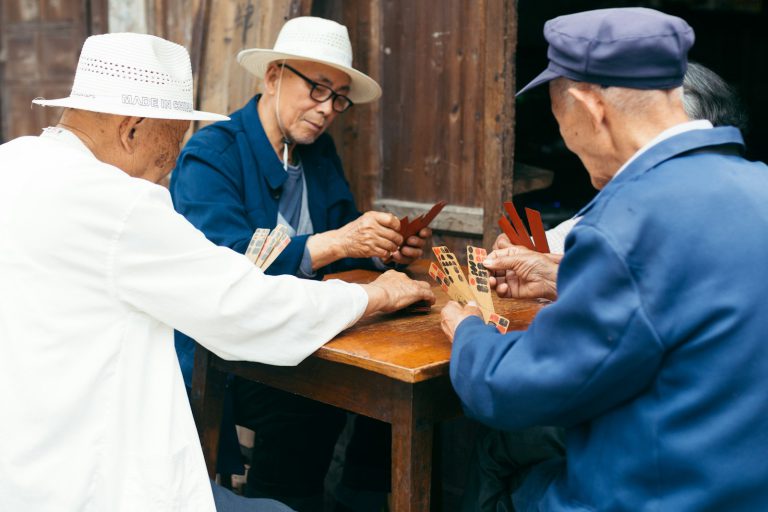For many introverts, retirement can be both exciting and daunting. Without the structure of work, how do you fill your time in a way that feels meaningful without forcing yourself into group activities or social settings? If you love quiet, solo pursuits and prefer your own company, there are plenty of ways to enjoy retirement without feeling pressured to be more social than you want to be.
Here’s how to make the most of your retirement on your own terms.
1. Explore deep-dive hobbies that keep your mind engaged
Many introverts thrive on intellectual stimulation and solo activities that offer deep focus. If you don’t have a hobby yet, consider:
- Writing – Start a journal, write short stories, or even begin a blog about your retirement journey.
- Photography – Capture beautiful landscapes or everyday moments during your walks.
- Gardening – A peaceful, meditative way to spend time outdoors and create something beautiful.
- Puzzle-solving – Crosswords, Sudoku, chess, or even jigsaw puzzles can keep your mind sharp.
- Music or Art – Learning to play an instrument or trying painting can be deeply rewarding.
- Knitting or crochet – Create hats for newborns, jumpers for penguins, or scarves and socks for people in need.
- Learning a foreign language – Challenge yourself with a new skill that keeps your brain active.
- Learning to cook foreign cuisine – Expand your culinary skills and enjoy new flavors from around the world.
- Drawing or painting in different styles – Experiment with different artistic approaches and mediums.
- Making stained glass ornaments – A rewarding craft that can be sold on Etsy or gifted to loved ones.
- Scrapbooking your travels – Document past trips in a creative and nostalgic way.
The best hobbies are the ones that feel engaging, not forced, so experiment until you find something that suits you.
2. Enjoy solo adventures: travel, coffee shops, and nature walks
Just because you’re introverted doesn’t mean you don’t love new experiences. Many introverts enjoy solo adventures, such as:
- Exploring new coffee shops – Find cozy, quiet spots where you can read or people-watch.
- Solo travel – Go on city breaks or countryside retreats where you can set your own schedule.
- Walking in nature – Long, uninterrupted walks in quiet parks or along scenic trails can be refreshing.
- Visiting museums and galleries – Enjoy culture at your own pace without social pressure.
- Litter picking in your local area – A peaceful way to make a positive impact while spending time outdoors.
- Magnet fishing in rivers and canals – A unique and relaxing outdoor activity that can also help clean up waterways.
- Fostering animals or pet-sitting – Enjoy the companionship of pets without long-term commitment. Some services allow you to travel and stay in new places while caring for animals.
- Growing herbs on your windowsill – A small but rewarding project that adds fresh flavor to your cooking.
If you prefer staying local, simply changing your daily routine—like visiting a different bookshop or trying a new scenic route—can keep things fresh and exciting.
3. Take on meaningful personal projects
Many people who have thrived in their careers enjoy having projects to focus on in retirement. Some ideas include:
- Starting a side business – Consulting, freelancing, or turning a passion into income.
- Self-improvement goals – Learning a language, coding, or taking online courses.
- Volunteering remotely – Supporting charities or helping others from the comfort of home.
- Organizing family history – Digitizing old photos or researching ancestry.
- Restoring or upcycling small furniture – Give old pieces a fresh new look with DIY skills.
- Decluttering your home – Simplify your space and make it more enjoyable.
- Learning how to bake bread – A simple, meditative, and rewarding skill.
- Donating blood or plasma – A meaningful way to give back without social pressure.
Personal projects provide structure and purpose without the need for extensive social interaction.
4. Redefine ‘socialising’ on your own terms
Just because you prefer solitude doesn’t mean you have to completely isolate yourself. You can stay connected in ways that feel comfortable:
- One-on-one meetups – Catch up with close friends individually instead of group gatherings.
- Online communities – Engage in discussions via forums, social media groups, or book clubs.
- Phone or video calls – Stay in touch with family and friends at your own pace.
- Volunteering behind the scenes – Helping at a local library, museum, or animal shelter in roles that don’t require much social interaction.
The key is to set boundaries and engage on your own terms.
5. Build a fulfilling daily routine
Introverts often find comfort in routine. Creating a structured day can help maintain a sense of purpose in retirement. Consider:
- Morning rituals – Start the day with reading, meditation, or a quiet cup of tea.
- Daily walks or exercise – Get fresh air while staying active.
- Dedicate time for hobbies or learning – Set aside time for a creative or intellectual pursuit.
- Relaxing evenings – Unwind with a good book, film, or music.
A simple, well-balanced routine can make each day feel enjoyable without feeling overwhelming.
Final thoughts
Retirement doesn’t have to mean group activities or forced socialising. Whether you prefer deep-focus hobbies, quiet adventures, personal projects, or a structured daily routine, there are countless ways to make retirement meaningful and enjoyable as an introvert.
The key is to embrace what brings you joywithout feeling pressured to be more social than you want to be.
How do you like to spend your time in retirement? Let us know in the comments!
🔗 Related articles:







